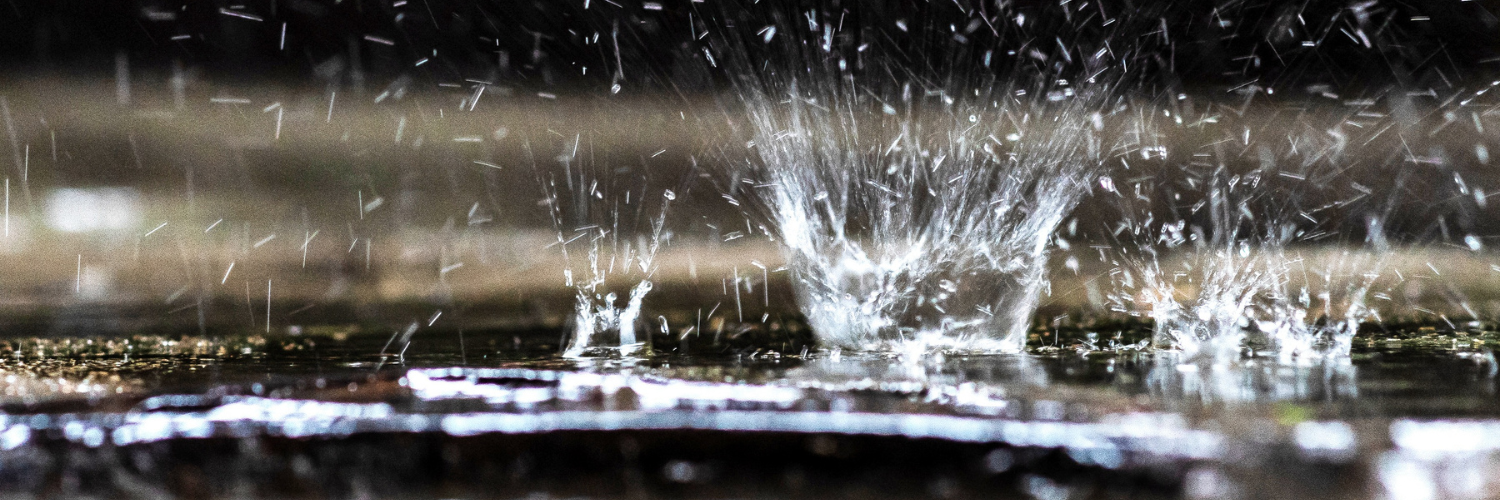Real Estate and Construction DRAINAGE OF WATER FROM PROPERTY – A PRACTICAL CHALLENGE

Current Challenges in Stormwater Management
The issue of stormwater drainage from properties is becoming an increasingly significant problem, particularly in areas where there is no stormwater sewage system. Regulations in this field are stringent, and inspections by relevant authorities are becoming more frequent.
The lack of proper regulation regarding the discharge of stormwater and meltwater from investment plots and existing facilities often poses a major challenge at the investment planning or building design stage. Frequently, there are existing conditions in place that require adaptation to current legal requirements. Therefore, it is worth recalling the applicable rules in this regard.
Prohibitions Related to Stormwater Discharge
First and foremost, pursuant to Article 9(1) of the Act on Collective Water Supply and Collective Wastewater Discharge, it is prohibited to discharge domestic or industrial wastewater into drainage systems intended for stormwater or meltwater resulting from atmospheric precipitation. It is also prohibited to discharge stormwater, meltwater, or drainage water into sanitary sewage systems.
Next, according to Article 75a of the Water Law Act, it is forbidden to discharge stormwater or meltwater collected in open or closed stormwater drainage systems directly into groundwater or into water facilities if these waters contain substances particularly harmful to the aquatic environment, or if such discharge would violate the conditions set out in the regulations.
Finally, under Article 234(1) of the Water Law Act, a landowner, unless otherwise provided by law, may not alter the direction and intensity of the runoff of stormwater or meltwater from their property, or the direction of water runoff from springs, to the detriment of neighbouring land. It is also prohibited to discharge water or introduce wastewater onto neighbouring land.
Rules for Discharging Water onto One’s Own Property
Can rainwater be discharged onto one’s own land? This is addressed in § 28 of the Regulation of the Minister of Infrastructure on the technical conditions to be met by buildings and their location. According to this provision, a building plot on which buildings are located should be equipped with a drainage system that allows for stormwater discharge into the stormwater or combined sewer system. Only in the case of low-rise buildings or buildings that cannot be connected to the stormwater or combined sewer system is it permitted to discharge stormwater onto unpaved private land, into soakaways, or retention tanks. Furthermore, under § 29 of the Regulation, it is prohibited to alter the natural flow of stormwater in order to direct it onto a neighbouring property.
Discharging stormwater and meltwater into water bodies via open (e.g. drainage ditches) or closed stormwater drainage systems, or into combined sewer systems within city administrative boundaries, requires a water permit. An exception is made for older systems constructed before January 1, 1975, which, under the repealed Article 133 of the 1974 Water Law Act, did not require such a permit.
Legal Consequences of Improper Water Discharge
Currently, in Poland, there are thousands of illegal installations discharging stormwater into sanitary sewers, stormwater systems, drainage systems, rivers, or directly onto land (either the owner’s or a neighbour’s). The issue of neighbouring properties being flooded is becoming increasingly common. This proves particularly problematic when the neighbour intends to develop previously unused land.
Improper stormwater discharge can lead to various legal consequences. In civil law – such actions may be classified as nuisances and can be challenged in civil proceedings. In administrative law – such behaviour violates construction law (enabling proceedings by building supervision authorities) and water law (disturbance of water relations, proceedings handled by the local mayor). Finally, in criminal law – anyone discharging wastewater into drainage systems without a contract may face a fine of up to PLN 10,000 or restriction of liberty. Under the Water Law, fines are also imposed for altering the direction and intensity of stormwater or meltwater runoff or for discharging water or wastewater onto neighbouring properties, with particularly severe penalties ranging from PLN 1,000 to PLN 7,500 for unauthorized water facilities. There are also potential criminal consequences under construction law, especially regarding unauthorized installations or improper maintenance and use of a facility.

